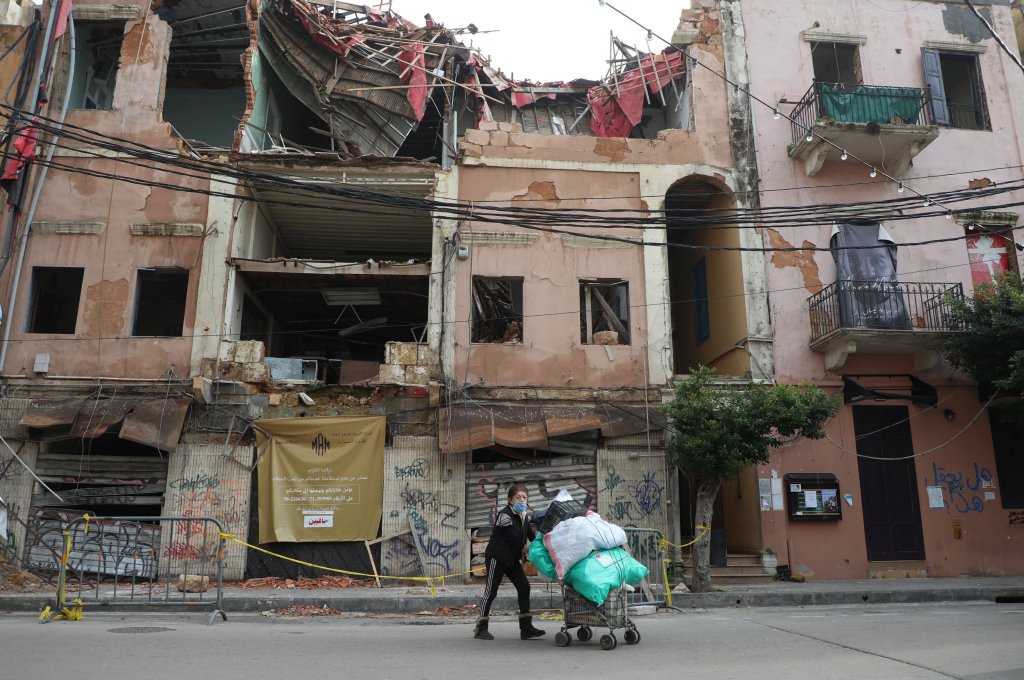Advocates say action is needed to stop the hemorrhaging of Christians from their biblical homelands, particularly Lebanon and Iraq, as safety, poor governance and economic crises imperil their future.
“Lebanon is the only one place now on earth where there is Christian-Muslim conviviality. That is why it bothers the heck out of me — this is my issue with Hezbollah and others who don’t buy into the very history and identity of Lebanon,” warned Maronite Catholic Bishop Gregory J. Mansour, who heads the Eparchy of St. Maron of Brooklyn, New York.
The bishop recounted Lebanon’s distinct history and religious mosaic while addressing a pair of panels at the Washington, D.C.-based In Defense of Christians national summit focusing on “Combating Oppression and Empowering the Oppressed” Sept. 21 and 22. The conference was in person and livestreamed.
“Lebanon was created intentionally when (Maronite) Patriarch Elias Peter Hoayek, at the age of 76, traveled to Versailles (in 1919) to urge allied leaders to carve out a nation that would be a refuge for Christians and Muslims,” Mansour explained. “He went with a delegation of Christians and Muslims with the vision of its borders including Shiites, Sunni Muslims, Druze and every kind of Christian.”
“We believe that a Muslim-Christian conviviality can survive, and it is in the best interest of Lebanon … because it is not an enclave unto ourselves, but it’s a reaching out to the neighbor as an equal,” he said.
But Iran-backed Hezbollah, which is still the only remaining armed militia since the country’s 1975-1990 civil war, now is also the ailing country’s main political powerbroker. Critics accuse Hezbollah of creating a state within a state at the behest of Iran.
Lebanon finally has a new government following a yearlong political paralysis that sank its economy. Observers, however, blame decades of corruption and mismanagement by the country’s political elite for the tiny Mediterranean country’s financial crisis.
Most Lebanese are struggling to survive amid soaring inflation and the more than 90 percent loss in the value of their currency, coupled with fuel and medicine shortages and severe power cuts. The deadly port blast in Beirut in August 2020 has exacerbated Lebanon’s woes.
“I cannot overemphasize how important Catholic institutions are in Lebanon,” Mansour said of the many hospitals, schools and social programs run by Catholic groups.
“Without them, the government has been zero, and if you want to serve the poor in Lebanon, help the Catholic institutions, because they help Catholics, Orthodox, evangelicals, Shiites, Sunni Muslims and Druze.”
Mansour appealed for the preservation of Lebanon’s unique history and conviviality, warning that the Lebanon the world has known and loved “might not be there tomorrow if you don’t help the Catholic institutions, for instance, or if you don’t diminish some of Hezbollah, Iran or Saudi Arabia’s arm on Lebanon. We don’t want a Lebanon that looks like Saudi Arabia or Iran.”
Former Lebanese lawmaker Neemat Frem, who is working on a project examining how to rebuild Lebanon’s governance and decision-making processes, told the gathering he is willing to give the new government two months to see how it will deal with the International Monetary Fund’s discussions on structural changes to the banking sector and the economy as well as government decision-making regarding Hezbollah and other political forces.
He warned that Lebanon’s failed state is a silent killer, causing an exodus of Christians from the country because of deteriorating living conditions. “This is alarming. This will forever change Lebanon,” Frem cautioned. “This is why we need to act now.”
Habib Malik, a professor at Lebanese American University, said Lebanon is “losing its youth to galloping emigration” due to the economic, political and governance problems engulfing the country.
“It’s Christian youth primarily, along with entire Christian families (that) are packing and leaving permanently,” Malik said. “This will render Lebanon indistinguishable from its Arab surroundings in terms of the absence of basic freedoms and pluralist coexistence.”
Gregg Carlstrom, a reporter for The Economist, tweeted Sept. 23 that “passport applications in Lebanon are up 50 percent compared to previous years, and the government has issued a record 6,000 passports each working day since mid-June.”
Mansour reminded the IDC conference that St. John Paul II said Lebanon is more than a country, it’s a mission.
“Christians and Muslims have an equal buy-in to that reality,” said Mansour. “The role of Lebanon and its identity are so important and worth fighting to defend.”
Nadine Maenza, chair of the U.S. Commission on International Religious Freedom, told the summit: “Christians in the Middle East are struggling. They don’t have the kind of support that they need. The U.S. really needs to re-look at how we are supporting these communities.”
Maenza applauded the U.S. Agency for International Development for helping to rebuild homes on the Ninevah Plain, which had been overrun by Islamic State militants. But she said the security situation is so terrible that many Christians can’t live there. The same is true for Syria, she said.
Mansour said Pope Francis was “moved to the deepest part of his soul” during his historic visit to Iraq in March.
“Not by the persecution of Christians, we’re used to that,” the bishop told the gathering. “He was moved by the forgiveness of some of those Christians toward their persecutors. And it just enabled him to redouble his efforts to work for justice and peace.”
Source: Catholic News Service






